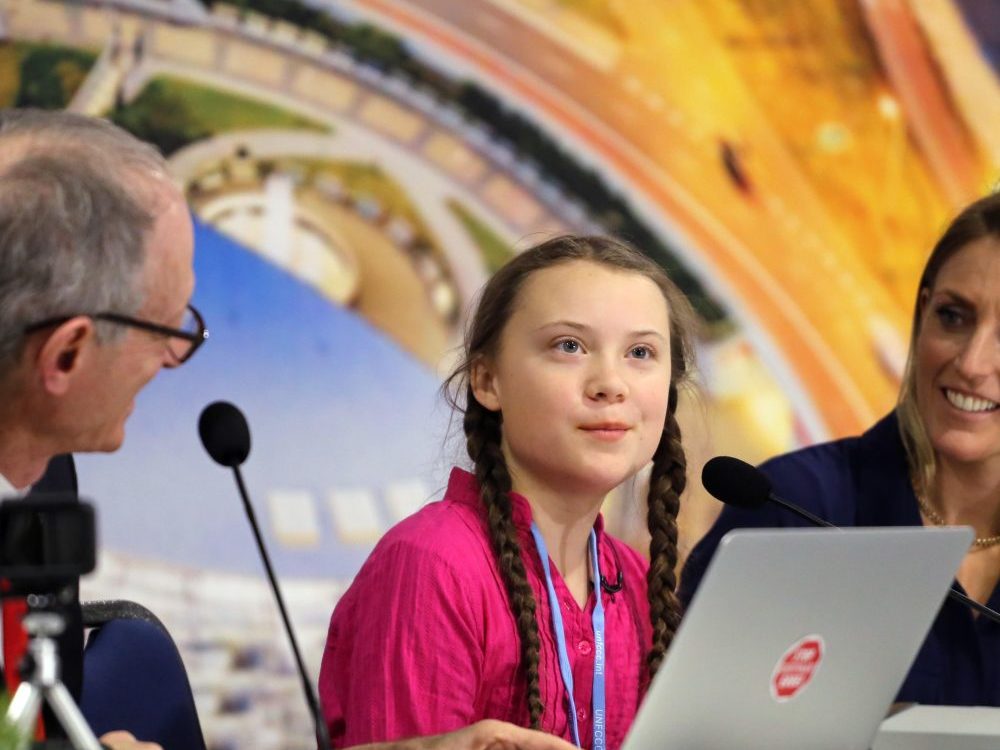Greta Thunberg said that she takes personal criticism as proof that activists are making a difference.
“You just have to ignore them because they are just so desperately trying to remove the focus from the climate crisis to make it become something about me as an individual,” she said. “When they do that, I mean, they don’t have any arguments left.”
This was in response to one of the many negative comments thrown at her last week.
One in particular has stuck out out to me. Michael Knowles, a guest on Fox News, brought up Thunberg when discussing the issue of eating meat.
“None of that matters because the climate hysteria movement is not about science. If it were about science it would be led by scientists rather than by politicians and a mentally ill Swedish child who is being exploited by her parents and by the international left,” Knowles said.
Fox News issued an apology for the “disgraceful” comment and said that Mr Knowles would not be working for the channel in the future.
The Swedish 16 year old environmental activist has not only been heard by politicians, teachers, and children across the world, she has emerged as a role model to those on the autism spectrum, and has educated others about what autism can look like.
“When haters go after your looks and differences, it means they have nowhere left to go,” she wrote on Twitter in August. “I’m not public about my diagnosis to ‘hide’ behind it, but because I know many ignorant people still see it as an ‘illness’, or something negative. And believe me, my diagnosis has limited me before.”
My seven year old son has a diagnosis of ADHD and autism. I am well aware of the lack of understanding and stigma about autism and the judgement from adults. “He doesn’t seem very autistic” and “nothing seems wrong with him” are comments from people I know.
I have walked home from school in floods of tears after a difficult drop off, facing other parents who look away, and ostracise me from their conversations because they wrongly fear that his behaviour will rub off on their child.
When my son grows up, he dreams of being just like his hero, the survival expert, Bear Grylls. It has been a goal of his to meet his hero, so I recently reached out to his team, and by a stroke of luck and Bear’s generous spirit, he agreed to meet us.
He patiently listened to my son’s daily survival challenges – from waking up in the morning, when sometimes the clothes next to his skin can irritate him enough that he cries. On other days these things are no problem for him, this allows him to focus all of his brilliant ideas and use his imagination. Bear Grylls was kind to my son in a way that will give him strength going forward. His motto “never give up” is one that Cody will need in his life facing his challenges. Bear could see the joy and wonder in Cody, the lust for life and passion for nature and the environment. Many do not see his abilities and gifts. Why is it that people feel the need to label Greta as being mentally ill for having an opinion and not backing down and for living with a diagnosis of Asperger’s? Surely, they would be better off spending their time and energy focusing on the real issue here, climate change.
Clinical psychologist, Dr Michelle Tolfrey, Clinical Director of Talking Heads says that used in this way, the term ‘mentally ill’ is pejorative, reductionist and with the intention to discredit and undermine Greta’s message. It shows how much further we need to go in challenging people’s understanding of mental health and the language we use around it.
People are not ‘mentally ill’ – people experience mental health difficulties. Changing the ways in which we talk about mental health is paramount in helping people understand that these are things we can all experience but do not define us.
And most importantly, you can be someone who experiences a mental health difficulty or neurodevelopmental condition and have valid and important thoughts and opinions. These are not mutually exclusive.
When a celebrity is ill with mental health issues, “he’s gone nuts, lost the plot.” When we think of a mental health facility, padded rooms and straight jackets have been fed to us through films and the media. Often, these places have people taking part in art projects, playing games, they look like a hospital facility with people mending their heads.
Greta doesn’t need her head mending, she has Asperger’s and always will. There is no medicine to take, she sees the world differently and faces daily challenges on a personal level because of her diagnosis, but she’s not “mental” and would like people to stop criticising her age, clothes, behaviour and differences.
Perhaps it’s time we change the words we use to refer to people’s health altogether. The Maori language, used in New Zealand by 125,000 people of Maori descent, introduced 200 new words into their dictionary in 2017. The Maori disabled community was consulted by Keri Opai, a civil servant who helped devise the words in order to develop variants that differ from what he called the “sometimes condescending English terms”, and instead emphasise “gaining strength and ability.
The word they came up with for ‘disabled’? ‘Whaikaha’, which means to “have strength or to be differently able.”
Greta describes her Asperger’s as her superpower. She’s right. It’s time that other people saw differences such as Asperger’s as a positive instead of a negative.









